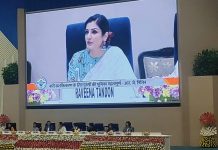It is typical of the government’s skulduggery that it moved the Supreme Court without communicating the tribunal’s order to the contesting party, SIMI, which, in this case, actually won a hard-fought five-month battle against the government at the tribunal. “The appropriate step for the government would have been to at least inform us that an order has been passed in our favour and that it is going to appeal against it before the Supreme Court,” a lawyer connected with Falahi’s defence told TEHELKA.
It has also been suggested in the news media — no doubt based on off-the-record suggestions by Union Home Ministry officials and by the government’s lawyers — that tribunal judge Mittal threw out the Centre’s ban notification on some “technical grounds”. Nothing could be further from the truth. This reporter attended the tribunal’s hearings across nine cities over three months. The truth is that case after case that the Centre brought before the tribunal was either dubious in its evidence or on procedural issues before the trial court.
INDEED, RIGHT from the step of issuing the notification banning SIMI on February 7 this year, the Centre did not meet a variety of requirements laid down by the 1967 law, as well as the standard procedures of litigation and the principles of natural justice.
The ASG’s submissions before the Supreme Court on August 6 while urging for a stay of the tribunal’s order are of a piece with the deception that the government has practiced before the tribunal throughout. To begin with, the Central government’s notification banning an organisation under the 1967 law must state its opinion and the grounds that led it to the opinion. It is astounding that the notification, while giving out its opinion that SIMI must be banned because of its unlawful activities, set out no ground. During the last days of the hearings at the tribunal, Judge Geeta Mittal had virtually lost her cool with the counsel for the Central government on this issue.
Falahi’s counsel Jawahar Raja — a formidable young lawyer who kept his opponents on tenterhooks throughout the three months — demanded that the government set down in writing which part of the notification it considered as the “grounds” that substantiated its opinion that SIMI be banned. Initially, the government submitted in writing that “the last 4 sub paragraphs” of the notification are the grounds upon which SIMI has been declared an unlawful association. However, three months later when Additional Solicitor General KK Pathak, who led the government’s charge throughout in the tribunal, submitted a “Synopsis of Reply” arguments on July 30, he wrote: “The first 3 (three) sub paragraphs of the notification dated 7.2.2008 are the grounds”.
“It is evident, therefore, that even the Central government is desperately casting about in search of the grounds in the notification, which in fact contains no such grounds,” Falahi’s lawyer Raja submitted before the tribunal.












